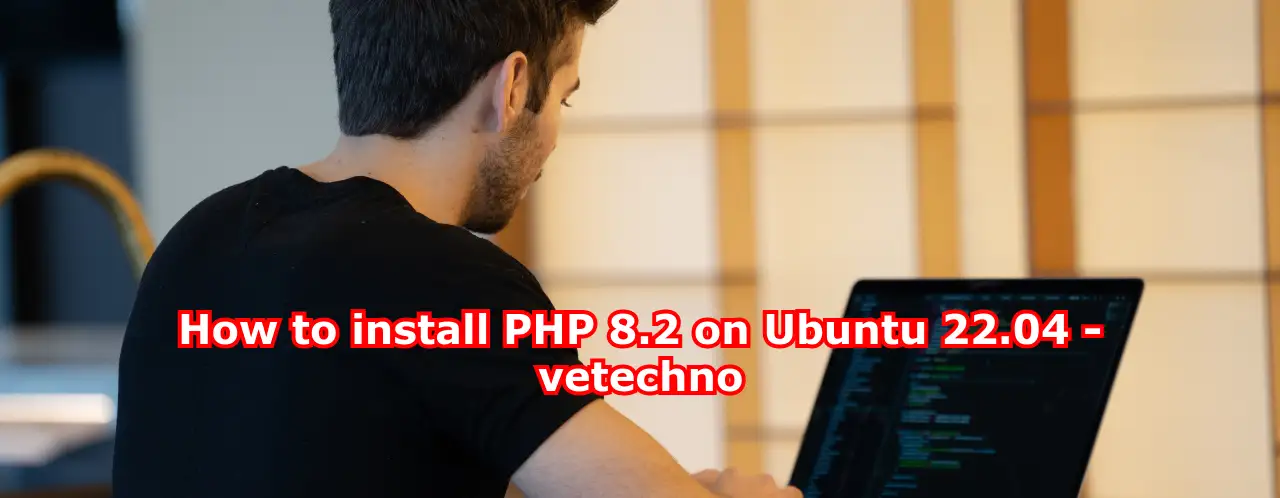Last Updated on March 13, 2023 by Vikash Ekka
PHP 8.2 is the latest version of the popular server-side scripting language, and it brings a range of new features and improvements to the language. If you are using Ubuntu 22.04, Ubuntu 20.04, or Ubuntu 18.04, you can easily install PHP 8.2 using the official package repositories.
Also Read:
Downgrade PHP 7.4 to PHP 7.3 in Ubuntu 20.04 LTS
How to Hide Apache, Nginx, or PHP version on Ubuntu
In this article, we will provide a step-by-step guide on how to install PHP 8.2 on Ubuntu.
Prerequisites
- You must have sudo / root privileges to access Ubuntu Operating System
- Internet connection
- Operating System :- Ubuntu 22.04, 20.04, 18.04 LTS.
These commands can be also executed on Ubuntu 20.04 and 18.04 LTS.
Step 1: Update Your System
Before you begin installing PHP 8.2, it is important to make sure that your system is up to date. You can do this by running the following commands:
sudo apt update
sudo apt upgradeThis will update your system with the latest security patches and bug fixes.
Step 2: Add PHP Repository
To install PHP 8.2 on Ubuntu, you will need to add the ondrej/php repository to your system. This repository contains the latest version of PHP and is maintained by the Debian PHP team.
To add the repository, run the following commands:
For Ubuntu 22.04:
sudo add-apt-repository ppa:ondrej/phpFor Ubuntu 20.04:
sudo add-apt-repository ppa:ondrej/phpFor Ubuntu 18.04:
sudo add-apt-repository ppa:ondrej/phpOnce you have added the repository, run the following command to update your package list:
sudo apt updateStep 3: Install PHP 8.2
Now that you have added the PHP repository, you can install PHP 8.2 by running the following command:
sudo apt install php8.2This will install PHP 8.2 and all of its dependencies on your system.
Step 4: Install PHP Modules
PHP 8.2 comes with a number of built-in modules, but you may need to install additional modules depending on your specific needs.
To install a module, run the following command:
sudo apt install php8.2-<module>Replace <module> with the name of the module you want to install. For example, to install the MySQL module, you would run:
sudo apt install php8.2-mysql php8.2-mbstring php8.2-imap php8.2-curlYou can install as many modules as you need using this same syntax.
Below is the list of all php modules name
- apcu
- bcmath
- bz2
- calendar
- Core
- ctype
- curl
- date
- dba
- dom
- enchant
- exif
- fileinfo
- filter
- ftp
- gd
- gettext
- gmp
- hash
- iconv
- igbinary
- imagick
- imap
- intl
- json
- ldap
- libxml
- mbstring
- mcrypt
- memcache
- memcached
- mongodb
- mysqli
- mysqlnd
- OAuth
- odbc
- openssl
- pcntl
- pcre
- PDO
- pdo_dblib
- pdo_mysql
- PDO_ODBC
- pdo_pgsql
- pdo_sqlite
- pgsql
- Phar
- posix
- pspell
- readline
- recode
- Reflection
- session
- shmop
- SimpleXML
- snmp
- soap
- sockets
- SPL
- sqlite3
- ssh2
- standard
- sysvmsg
- sysvsem
- sysvshm
- tidy
- tokenizer
- uuid
- wddx
- xml
- xmlreader
- xmlrpc
- xmlwriter
- xsl
- yaml
- zip
- zlib
Step 5: Test PHP Installation
Once you have installed PHP 8.2 and any necessary modules, you can test your installation by creating a PHP file and accessing it through your web browser.
Create a file called info.php in your web root directory by running the following command:
sudo nano /var/www/html/info.phpAdd the following code to the file:
<?php
phpinfo();
?>
Save and close the file. Then, open your web browser and navigate to http://<your-server-ip>/info.php. This should display a page containing information about your PHP installation.
Conclusion
In this article, we have provided a step-by-step guide on how to install PHP 8.2 on Ubuntu 22.04, Ubuntu 20.04, and Ubuntu 18.04.
By following these instructions, you should now have PHP 8.2 installed and ready to use on your Ubuntu server. If you encounter any issues during the installation process, consult the official PHP documentation or seek assistance from the Ubuntu community.
Let us know if you are facing any issue and difficulties while installing php in the below comment box, we will happy to assist you.
Also Read:- How to Hide Apache, Nginx, or PHP version on Ubuntu
Also Read:- How to Uninstall PHP, Apache and MySQL on Ubuntu 18.04 LTS
Also Read:- How To Install Linux, Apache, MySQL, PHP (LAMP) on Ubuntu 20.04 LTS

[…] How to install PHP 8.2 on Ubuntu 22.04 […]